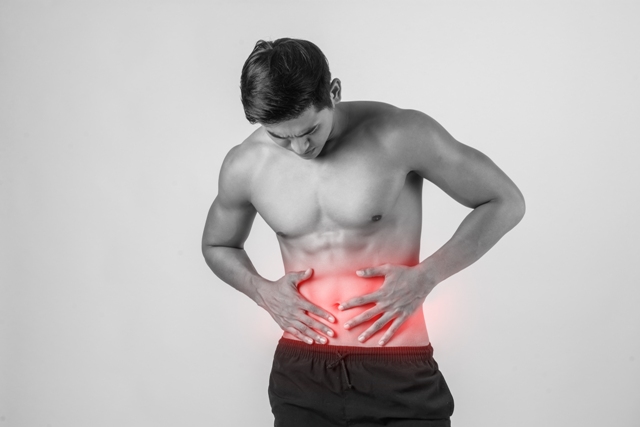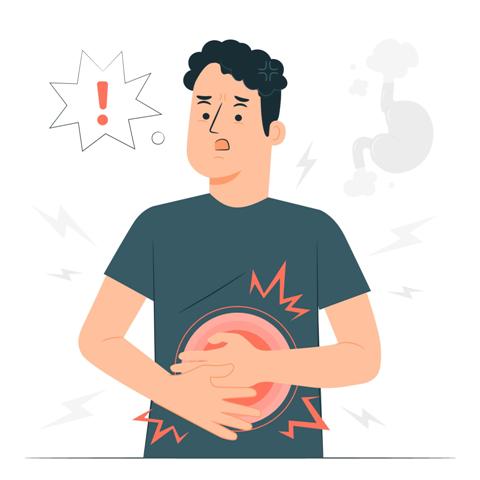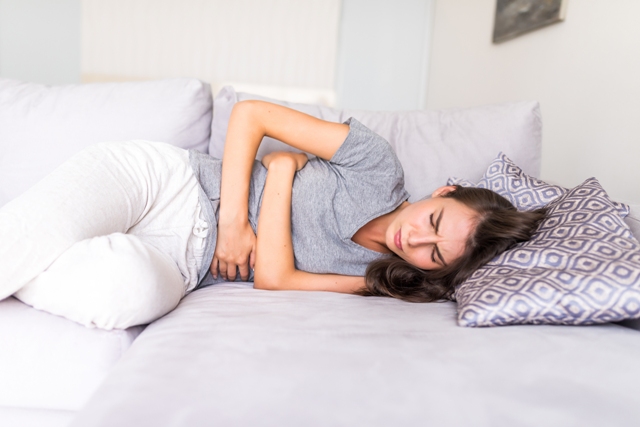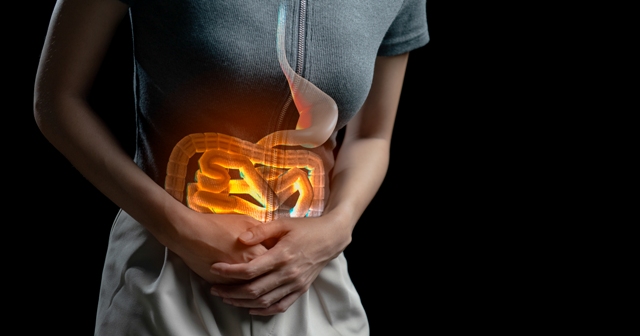Diverticulitis is referred as an inflammatory condition of the digestive tract. It is very painful and causes various complications. Basically small pouches that have developed in the colon are known as diverticula and if diverticula get inflamed and infected then the condition is called as diverticulitis.
This article will discuss about 15 important natural remedies that help to improve the symptoms of diverticulitis –
Focus on liquid diet
- Often liquid diet is recommended when an individual experiences flare-up of symptoms. It is then better to consume a liquid diet especially clear fluid diet for some days followed by low fibre diet
- It helps to provide proper rest to the digestive system as a result improves the symptoms
- Broth, strained fruit juice, water, tea without milk, coffee, gelatin, ice popsicles without fruit pieces or pulp can be consumed
- Though it is not wise to stay on liquid diet for a long period of time as it may develop nutrient deficiencies so it is better to consult with health experts and individual should stay on liquid diet as per recommendation
Regulate your fibre intake
- It is better to adapt a low fibre diet in order to improve the symptoms after which fibre can be gradually introduced into the diet
- Fibre intake can be only increased if an individual experiences a symptom of flare up

Dig up more Vitamin D
- Getting more Vitamin D is considered as an important remedial action for diverticulitis as lower Vitamin D level may increase the risk of developing diverticulitis
- It is better to increase the Vitamin D level in body and it can be easily achieved by consuming some Vitamin D rich foods like fatty fish (salmon, tuna etc), cheese, liver, mushroom, egg etc. An individual can also get Vitamin D through sun exposure. Whereas Vitamin D can also be consumed in supplemented form

Try Frankincense
- It is better to incorporate frankincense resin in diet in order to prevent diverticulitis. It can be also consumed in supplementary form like in the form of tincture or tablet
- It exerting powerful anti-inflammatory activity that help in preventing inflammation thus its consumption is thought to be very effective for providing relief from pain
Have probiotics
- Consumption of probiotics is considered as one of the most imperative preventive measures for diverticulitis
- Basically probiotics contain various species of beneficial bacteria that ultimately help in improving overall digestive health
- It plays vital role in reducing the symptoms and it is also associated with decreasing the recurrence of diverticulitis
- You can try probiotic supplements or any fermented foods, which contain probiotics such as yogurt, miso, sauerkraut, kimchi, kefir etc

Try ginger
- Consumption of ginger is considered as another remedial action for diverticulitis
- Ginger has been traditionally used for various digestive issues and diverticulitis is not an exception
- It is very effective for improving the symptoms as it helps in soothing the intestinal tract
Have turmeric
- Turmeric is an important herb that has been used for centuries for various medicinal purposes, especially for digestive disorders
- It contains an important component named curcumin that exerts potent anti-inflammatory activity, which helps in preventing swelling and helps to provide relief from pain
- It can be consumed as dried spice or its root can also be consumed
Try garlic
- Consumption of garlic is very useful for improving the symptoms of diverticulitis
- It has powerful antimicrobial activity that helps in suppressing the growth of microbes as a result reduces the prevalence of infection
- It helps to promote regularity as well that helps to reduce the complication too
- Though garlic can cause various digestive symptoms in some people because it contains high amount of monosaccharide, disaccharide, oligosaccharide and polyols thus for these people allicin supplement is considered as easier to tolerate


Often apply heat pad
- Often applying a heat pad may help to provide relief from the pain
- Different types of heat pad can be used like microwave heat pad, hot water bottles, electric heat pad etc
Have some green tea
- We all know that green tea offers numerous health benefits and in the case of diverticulitis it is also very helpful
- It has seen that green tea exerts powerful antimicrobial activity that helps to decrease the susceptibility of developing infections thus its consumption is thought to be very effective for lowering the prevalence of diverticulitis
- It also exhibits anti-inflammatory activity that is accountable for preventing swelling as well as pain
Often consume Alloy Vera juice
- We all know that Aloe Vera offers numerous health benefits including promoting regularity, which is considered as an important feature responsible for decreasing the complication of diverticulitis
- It is also associated with preventing pain and cramping thus it is better to consume Aloe Vera juice for soothing the symptoms
Consume plenty of fluid
- It is better to keep the body hydrated as water helps in resolving diverticulitis
- It helps to decreases the prevalence of diverticulitis attack as well
- It is better to consume at least 8 ounce glass of water per day
- Water consumption is associated with preventing constipation, which is also responsible for decreasing the complication
- Though the management of diverticulitis is completely depend upon the extent of the disease, in some case only hydration is not sufficient and it is recommended to maintain a liquid diet (mentioned above)

Avoid the consumption of refined and processed foods
It is better to avoid refined and processed food as it may worsen the condition
Physical activity
- Physical activity plays imperative role in promoting overall wellbeing and individual suffer from diverticulitis should engage them in physical activity
- Physical exercising like cycling, brisk walking, aerobics etc significantly improve the symptoms of diverticulitis
- Basically physical activity helps in improving circulation that ultimately helps in reducing the complications in many folds
- It is also associated with decreasing the risk of diverticular bleeding as well as diverticulitis
- Exercise is closely related with promoting the release of endorphins that act as natural pain reliever for body and plays vital role in elevating the pain that has occurred due to diverticulitis
- Physical activity is also linked with exhibiting anti-inflammatory effect, which is accountable for preventing pain
- Whereas physical activity helps in decreasing the prevalence of constipation as well, which is also responsible for preventing the complication

Often use digestive enzymes
- Digestive enzymes are protein rich substances that help in digesting foods and killing toxins within body
- These enzymes are also associated with preventing intestinal inflammation and also aid in accelerating the healing process thus it is better to keep the level of digestive enzymes in body at check
- These enzymes are produced by various glands of our body like salivary gland, stomach, pancreas, intestine etc. It can be also found in some foods like papaya, pineapple, pears etc. whereas it is also found in supplemented form so consumption of such foods or supplements help in improving the level of digestive enzymes in body as a result help in improving the symptoms
When to see a doctor?
Though all of the above stated remedies help in improving the symptoms of diverticulitis but if anyone experience rectal bleeding or excessive vomiting or fever then it is better to call the doctor right away

Source:
Aldoori, W. and Ryan-Harshman, M., 2002. Preventing diverticular disease. Review of recent evidence on high-fibre diets. Canadian Family Physician, 48(10), pp.1632-1637.
Hawkins, A.T., Wise, P.E., Chan, T., Lee, J.T., Mullaney, T.G., Wood, V., Eglinton, T., Frizelle, F., Khan, A., Hall, J. and Ilyas, M.M., 2020. Diverticulitis–An Update from the Age Old Paradigm. Current problems in surgery, 57(10), p.100862.
Janes, S.E., Meagher, A. and Frizelle, F.A., 2006. Management of diverticulitis. Bmj, 332(7536), pp.271-275.
Maconi, G., Barbara, G., Bosetti, C., Cuomo, R. and Annibale, B., 2011. Treatment of diverticular disease of the colon and prevention of acute diverticulitis: a systematic review. Diseases of the colon & rectum, 54(10), pp.1326-1338.
Strate, L.L. and Morris, A.M., 2019. Epidemiology, pathophysiology, and treatment of diverticulitis. Gastroenterology, 156(5), pp.1282-1298.
Ünlü, C., Daniels, L., Vrouenraets, B.C. and Boermeester, M.A., 2012. A systematic review of high-fibre dietary therapy in diverticular disease. International journal of colorectal disease, 27(4), pp.419-427.


